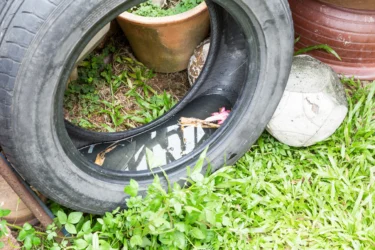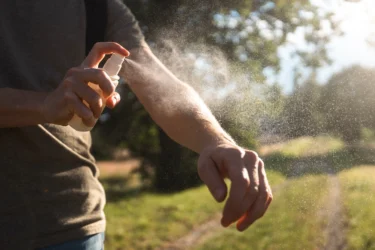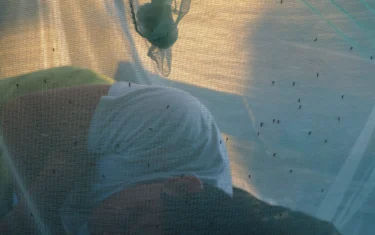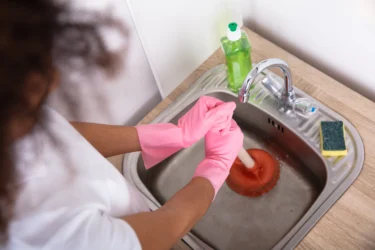Dengue fever is a mosquito-borne viral illness commonly seen in tropical and subtropical regions. It is caused by the dengue virus, which is transmitted primarily by the Aedes aegypti mosquito. These mosquitoes are most active during the early morning and late afternoon hours and are known as day-biting mosquitoes1.
Dengue spreads when a mosquito bites a person infected with dengue and then transmits the virus to another person through subsequent bites. The disease can cause a range of symptoms such as high fever (up to 104°F), intense joint and muscle pain, pain behind the eyes, nausea, vomiting, severe headaches, and fatigue1,2.
Dengue progresses through three phases:
Currently, there is no widely available dengue vaccine, although some vaccines like Dengvaxia (CYD-TDV) have been approved in certain countries for people who have had a dengue infection. Another vaccine, Qdenga (TAK-003), has also been approved in select regions but is not yet widely available in India3.
Given the limited availability of effective vaccines and the absence of targeted antiviral treatments for dengue, prevention remains the most effective approach for dengue management. Focusing on ways to avoid mosquito bites and reduce mosquito breeding can play a key role in protecting yourself and your community from this serious illness.

The mosquitoes that spread dengue breed in stagnant water found in everyday objects such as discarded tyres, plastic containers, flowerpots, septic tanks, and pet water bowls. Reducing the available habitat for these mosquitoes by regularly clearing out standing water can help prevent dengue. Since Aedes mosquitoes prefer clean, stagnant water to lay eggs in, it is important to clean potential breeding areas at least once a week3.

The mosquitoes responsible for spreading dengue are most active around dawn and dusk. To keep them out, fit your doors and windows with fine mesh screens. Make sure the screens have no holes and keep them closed during peak mosquito hours4.

Using mosquito repellents is essential, especially in tropical regions or crowded areas where the risk of bites is higher. Apply creams or sprays containing 10–30% DEET, picaridin, or IR3535 when travelling or even while indoors5. For children and infants, opt for mosquito patches, bands, or wipes from reputable brands. Avoid applying repellents directly to their hands or face.

To reduce the risk of mosquito bites, wear long-sleeved clothing, full-length trousers, socks, and covered shoes, especially in areas where dengue is common. Light-coloured clothing is recommended, as dark colours tend to attract mosquitoes3.

Sleeping under the mosquito net can provide an extra layer of protection from mosquito bites for you and your children6.

Clean and unclog drains, roof gutters, and water pipes around your home regularly. Cover all vessels and drums that are used to store water. These areas can collect stagnant water, creating breeding grounds for mosquitoes7.

Mosquitoes often gather in dark, damp areas, so keeping your home well-lit and well-ventilated can help reduce mosquitoes in the house. Allow natural sunlight into your rooms and ensure proper airflow. Lighting camphor in a closed room for about 30 minutes on alternate days may help repel insects; however, this should not be used as a substitute for proven mosquito prevention measures.

Dengue fever isn’t limited to indoor environments, it can also occur outdoors, such as during camping trips on humid days or walks in wooded areas after rainfall. Plan your outings according to the weather and carry essential mosquito protection with you, including repellent creams, long-sleeved clothing, and netted sleeping bags. Taking these precautions can help reduce your risk of mosquito bites when you’re outside8.
Seek immediate medical attention if you or a family member has a high-grade fever (around 40°C) accompanied by warning signs such as bleeding gums or nose, severe abdominal pain, or vomiting more than three times in 24 hours. These symptoms may indicate a serious form of dengue requiring urgent care.
Also Read: Diabetes Can Make Dengue More Lethal!
Consult a doctor promptly if you suspect dengue. A healthcare professional can confirm the diagnosis through blood tests and rule out other possible causes. If someone in your household is affected, the risk of others getting infected increases, as mosquitoes can transmit the virus from one person to another. Thus, prevention is still the best defence against dengue. By adopting the simple, practical steps listed above, you can significantly reduce your risk of contracting dengue and help protect your family and community.
Also Read: Dengue: The Silent Threat of the Monsoon Season
Disclaimer: The information provided here is for educational/awareness purposes only and is not intended to be a substitute for medical treatment by a healthcare professional and should not be relied upon to diagnose or treat any medical condition. The reader should consult a registered medical practitioner to determine the appropriateness of the information and before consuming any medication. PharmEasy does not provide any guarantee or warranty (express or implied) regarding the accuracy, adequacy, completeness, legality, reliability or usefulness of the information; and disclaims any liability arising thereof.